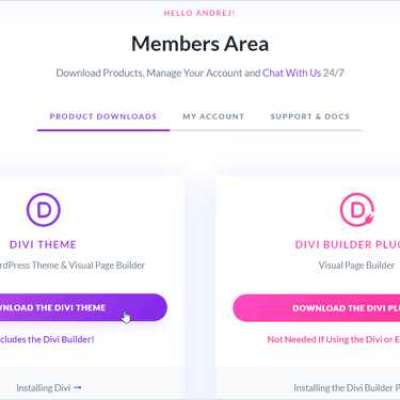The Growing Role of Healthcare App Development in Revolutionizing Patient Care
In the digital age, healthcare has evolved significantly, with mobile applications playing a crucial role in transforming how patients and healthcare providers interact. Healthcare app development is one of the most dynamic and fast-growing sectors in the tech industry, offering innovative solutions to various challenges faced by patients, doctors, hospitals, and other healthcare institutions. This article explores the significance of healthcare app development, the benefits it brings to the healthcare ecosystem, and the reasons why businesses in the sector should embrace it.
Why Healthcare Apps are Important?
The healthcare industry has always been in need of modernization. From long waiting times to managing patient records, traditional methods of healthcare delivery often fail to meet the needs of today’s tech-savvy, fast-paced world. Healthcare apps address these challenges by enabling patients and medical professionals to access crucial information and services at the touch of a button. These apps improve efficiency, enhance communication, and help in reducing human errors, which ultimately contributes to better healthcare outcomes.
1. Enhancing Patient Engagement and Experience
One of the most prominent advantages of healthcare apps is their ability to improve patient engagement. Apps allow patients to take charge of their health by providing access to their medical history, prescription details, lab results, and appointments. With features like appointment scheduling, telemedicine consultations, and medication reminders, healthcare apps make it easier for patients to manage their health.
For example, apps that offer telemedicine services enable patients to have virtual consultations with doctors from the comfort of their homes, removing the need for time-consuming office visits. This is especially beneficial for patients in rural or remote areas who may not have easy access to healthcare facilities.
2. Streamlining Medical Data Management
Managing patient data is a significant challenge for healthcare providers. Traditional paper-based systems are prone to errors, are time-consuming, and can lead to miscommunication between healthcare professionals. Healthcare apps provide an effective solution by centralizing patient data in a digital format, ensuring that all parties involved have real-time access to up-to-date information.
Additionally, secure cloud storage options in healthcare apps ensure that patient data is protected while being easily accessible. Such systems also make it easier for healthcare providers to track patient progress, make informed decisions, and reduce the chances of misdiagnosis.
3. Improving Healthcare Efficiency
The integration of mobile applications into healthcare operations helps streamline workflow processes for hospitals and clinics. Through features like real-time scheduling, staff management, and inventory tracking, healthcare apps ensure that operations run smoothly. Furthermore, automated processes help reduce administrative burdens, allowing healthcare professionals to focus more on patient care.
These apps can also optimize supply chain management, ensure medication availability, and automate billing and insurance processes, all of which contribute to reducing overhead costs and improving overall efficiency.
4. Empowering Doctors with Decision Support Tools
Healthcare apps are not just beneficial for patients; they also serve healthcare providers by equipping them with decision support tools. These tools analyze patient data and generate insights that can assist doctors in making informed clinical decisions. For example, some apps integrate Artificial Intelligence (AI) algorithms that help in diagnosing medical conditions based on symptoms, test results, and medical history.
These decision-making aids can be lifesaving, as they help doctors identify potential health risks earlier and more accurately, leading to better patient outcomes.
The Technological Features Shaping Healthcare Apps:
Healthcare app development involves the integration of several advanced technologies, all of which contribute to improving the user experience, enhancing security, and optimizing app functionality. Some of the most prominent technologies currently shaping healthcare apps include:
1. Telemedicine and Video Consultation:
With the rise of remote consultations, healthcare apps are incorporating video calling capabilities, enabling healthcare professionals to diagnose, treat, and interact with patients virtually.
2. Artificial Intelligence and Machine Learning:
AI and ML algorithms analyze vast amounts of patient data to help in diagnosis, predict potential health risks, and recommend personalized treatment plans.
3. Blockchain for Data Security:
Blockchain technology offers a high level of security for patient data, ensuring that sensitive information is encrypted and protected from cyber threats.
4. Wearable Device Integration:
Healthcare apps can now connect to wearable devices, such as smartwatches and fitness trackers, to monitor vital signs and activity levels, giving healthcare providers real-time health data for better decision-making.
Why Healthcare Providers Should Invest in App Development?
Healthcare organizations looking to remain competitive must embrace technology, particularly mobile apps, to meet the evolving demands of patients. As more consumers turn to mobile devices for their healthcare needs, having a well-developed healthcare app has become a necessity. Investing in mobile healthcare solutions not only improves patient satisfaction but also enhances operational efficiency and helps healthcare providers meet regulatory standards for patient data management.
Additionally, healthcare apps offer new revenue streams. For example, healthcare providers can offer premium services, like telemedicine consultations or health tracking features, through in-app purchases or subscription models.
Conclusion:
A Bright Future for Healthcare App Development
The future of healthcare is undeniably digital. As mobile app development continues to progress, healthcare apps will become increasingly sophisticated, offering more personalized, efficient, and secure healthcare solutions. By embracing these technologies, healthcare providers can enhance patient care, improve operational efficiency, and stay ahead of the curve in an ever-evolving industry.
In conclusion, the role of healthcare apps in reshaping patient care cannot be overstated. These digital solutions provide numerous benefits to both patients and healthcare providers, making healthcare more accessible, efficient, and patient-centric. As technology continues to advance, healthcare app development will play an even more prominent role in the ongoing transformation of the healthcare sector.
Source: https://www.osplabs.com/healthcare-app-developer/
Synes godt om
Kommentar
Del















